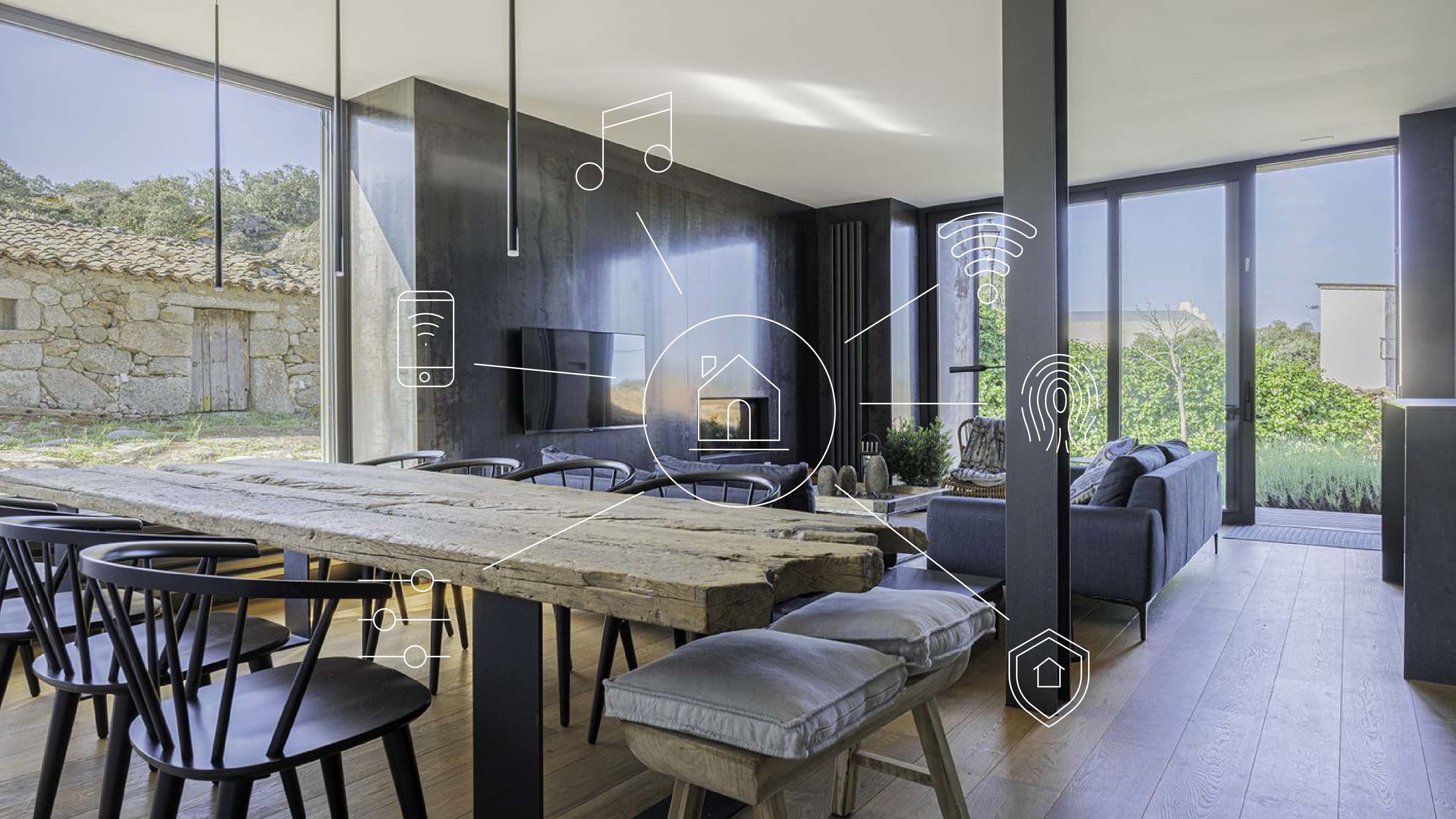Smart homes: welcome to the future
Technology is revolutionising the way we live — and where we live. Research by Statista predicts that by 2025, 3.8 million homes will be smart, equating to 21% of the housing stock in Spain. The unstoppable advance of artificial intelligence (AI) will yield new solutions for current and future household needs, prompting great strides in sustainability, comfort and connectivity. And, of course, a significant shift in the pricing landscape.

Think smart thermostats, plug sockets and speakers, voice- or motion-activated blinds and awnings, digital home locking systems that detect our approach via a mobile app and bathrooms fitted with automated technology... For many of us, artificial intelligence is now a familiar presence in our homes, promising lower energy bills, sustainability gains and, of course, a better quality of life.
This technology is not, then, quite as futuristic as it is sometimes made out to be. While in the headlines recently thanks to the revelatory arrival of ChatGPT, the generative AI application developed by OpenAI, artificial intelligence has been around for a while, built into state-of-the-art home automation systems. The next phase will see machines and devices capable of making their own decisions based on our routines and habits. The possibilities are mind-boggling, and legislation is needed to curb AI’s more out-there applications. This is already happening in Europe, with the EU’s Draft Regulation on Artificial Intelligence — the world’s first comprehensive legislation in this area.
The new law will impose obligations on both providers and users, depending on the surmised level of risk. For instance, biometric identification (based on voice, fingerprint or iris scanning) is considered a high-risk application, as is the use of AI to profile populations. Among other concerns, these technologies have implications for the individual’s right to privacy.
The enhancements that advances in AI can bring to our homes should be welcomed — but only as long as we remain in charge, and continue to see benefits in terms of sustainability, energy efficiency, connectivity and comfort.
Real estate sector
The world of AI has also given rise to major innovations for the real estate sector. Virtual assistants, for example, can make purchasing a property simpler and easier by answering questions and advising buyers in real time. More prosaically, it can be used to develop more targeted search engines for pinpointing suitable properties.
AI has also proved immensely useful to sellers as a tool for classifying documents, standardising datasets for portfolio analysis and comparative evaluation, predicting price shifts in investment management, facilitating property management, processing satellite imagery for use in valuation and risk management and informing decisions on leasing and investment deals.
All of these benefits have helped streamline the sales and purchase process, and new developments are undoubtedly on the cards.